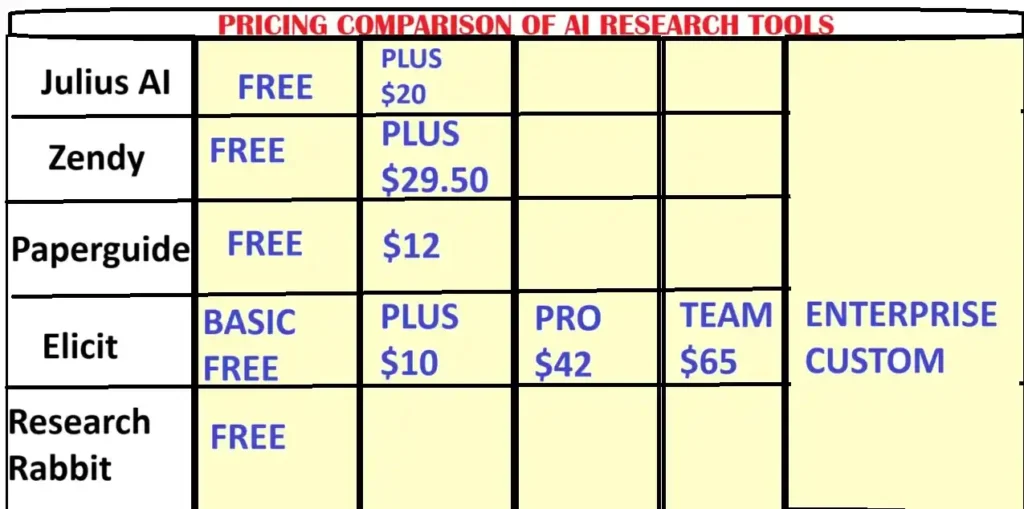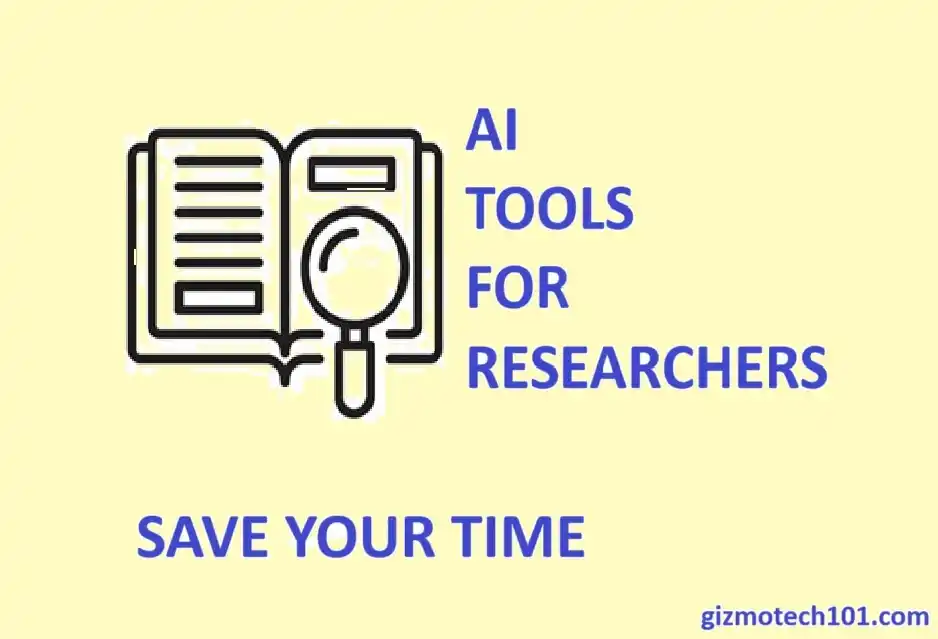Is it too time-consuming to research a certain topic? But, imagine saving hours in your research activities. AI tools have made it possible and help researchers significantly. They help you find relevant papers within a few seconds. Analyzing will be easier. From students to industry researchers, everyone has started using AI. So, which are the best AI research assistant tools? Find a curated list and simplify your research activities.

Julius AI– The Best AI Tool For Research and Data Analysis
Statistics is challenging for those who are not expert statisticians. However, statistical analysis becomes easy with Julius AI. This AI tool for researchers obtains data and creates codes based on your prompts.
Julius AI is a better alternative to ChatGPT especially for data analysis (check how AI is used for data analysis). It lets you upload and store files persistently. Thus, you may start multiple chats on the same files. So, why should you use Julius AI?
- No coding needed while conducting statistical tests
- Julius AI has a quick data processing ability.
- It automatically generates tables and charts.
- Julius clarifies the result and helps students understand statistics.
Zendy– The Top AI Tool for Scholarly Research
Zendy is one of the best AI research assistant tools for scholars. It acts as an AI-driven research library, giving you access to more than 40 million scholarly journals and articles. So, why should you use Zendy for research?
- Zendy has an AI research assistant feature to highlight keyphrases and summarize content. You can use this feature to accelerate your literature review process.
- The integrated AI tools help you save time during your literature review.
- Zendy has a user-friendly interface that enables you to find and organize research materials.
Zendy has an AI PDF analysis tool, allowing you to upload research papers. You will receive a quick and accurate analysis of every section.
Paperguide– A Comprehensive AI-powered Research Platform
Paperguide, released in 2023, is an advanced AI research assistant. So, we think it is worth including Paperguide in our list of the best AI research assistant tools. From students and researchers to professionals, everyone uses this tool to streamline complex activities, such as-
- Academic writing
- Citation management
- Literature reviews
Check for a few features of Paperguide-
- Use AI Search to input keywords and ask questions for an instant answer.
- Retrieve relevant data from your collection of references and stored papers.
- Autocomplete feature- To write content fast using contextualsuggestions.
- AI-suggested folders for smart organization
- Add annotations and notes for easy access
- Create flawless citations
- High-level summaries based on your questions
- Compile insights from different papers
Elicit– Research-Centric User Experience
Elicit is an innovatively designed AI tool to transform the way researchers manage their work. It improves their efficiency and maintains accuracy in your scholarly research. This platform automates research tasks, from key data point extraction to academic paper summarizations. Elicit lets you search through 125 million academic papers. Some significant features are-
- One-sentence abstracts for initial understanding
- Data extraction table- Organize data automatically
- Identify common themes across different papers
- Pose questions about research papers
- Upload and analyze your PDFs
- Receive notifications whenever new papers include particular keywords
- Transform data into graphs and charts
Research Rabbit– Free AI Tool to Find Connections between Scholarly Papers
Research Rabbit is a well-designed super-smart assistant for scholars and researchers. You can take advantage of this AI tool while dealing with various papers. There is no need to work on piles of notes. Research Rabbit tracks everything you have read. Why should you use Research Rabbit for research?
- Easy to explore papers- You can check the paper’s references and find who has cited it.
- Research Rabbit shows connections between authors.
- It generates visual maps for authors and papers.
- The tool recommends new papers based on your collection.
- Research Rabbit columns to display various views of papers. It is easy to switch to a different paper.
- Research Rabbit helps you add notes to academic papers and share collections with others.
Uses and Limitations of the Best AI Tools for Researchers
The top-rated AI-driven tools for research have a few limitations. But, their advantages in the world of research are undeniable.
Navigate the Literature
Researchers know the importance of literature reviews. AI tools have transformed the process, as they assist them with the analysis and identification of relevant literature.
They automate the process and enable you to summarize a large chunk of content quickly. So, you can easily detect trends and gaps. Natural Language Processing technology assesses content and helps you find relevant studies.
Streamline Peer-Reviewing
Peer-reviewing is traditionally a complicated process where you review other scholars’ research manuscripts. AI tools work as collaborators in this process. So, peer-reviewing will be a more time-efficient process.
As AI tools speed up your peer review, your innovative research will make an entrance into policy debate and public discourse. This makes it more likely that the research will help guide decisions, especially when policies need to be made quickly.
Derive Insights from Database
As Data analysis is a part of comprehensive research, AI improves the process. Innovative tools integrated with Machine Learning technologies navigate the database. They identify patterns and uncover nuanced insights that human eyes often miss.
Summing Up
Artificial Intelligence technologies are evolving fast, and they have made a significant transformation in the research world. From data analysis to peer-reviewing, different research activities become simple with AI tools. You will experience a streamlined workflow with the best AI research tools. Industry professionals and researchers can use these tools to increase their productivity. Need to explore more AI tools for educational purpose? Check our blog.

